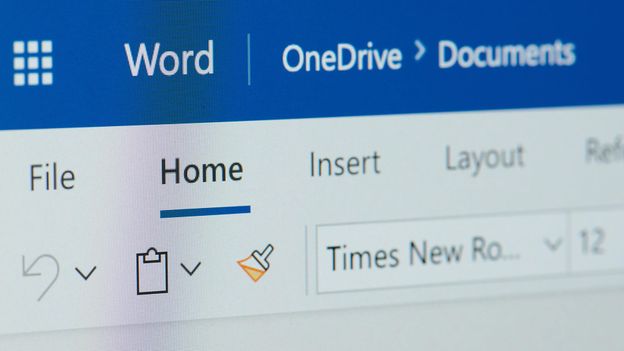The surprisingly subtle ways Microsoft Word has changed the way we use language::As Microsoft Word turns 40, we look at the role the software has played in four decades of language and communication evolution.
I keep forgetting that a lot of BBC stuff is commercial now, but this is an ad
Yeah, scanned about 75% of the article for anything interesting before I came to the same conclusion.
It spends half the time complaining, so I don’t think it’s an ad (never mind that commercial doesn’t mean advertorials). It’s more like they saw the anniversary coming up and came up with an angle they felt they could be interesting about.
“Word templates led people to use the same formatting in communications, and eventually, this has become instantiated as a norm,” says Gloria Mark, a professor of informatics at the University of California, Irvine, where she studies human-computer interaction. If you work in finance, there’s a specific way reports are expected to be laid out. Letters follow a set pattern, memos are largely formatted in the same way. “Users know where to find information in these standardised documents; they don’t need to spend time trying to find what they need.”
Correct me if I’m wrong, but at least Germany seems to have standards for this since 1949, so I doubt this can be contributed to Microsoft (alone).
Yeah, whe learned these standards in school.
There were books of letter and document templates, folks. Microsoft did not invent the semi-block format.
Right?
I’d posit WWII was the single greatest influence in recent history for more extensive standardization of just about everything in the business/project management/production/transportation/logistics worlds, and guess what - they all use tools like documentation and communication documents.
There were typing pools… And somehow Word standardized how docs are written/created??
And this BS from a “professor”.
There’s a reason for the phrase “Piled higher, Deeper” and this “professor” exemplifies it.
Word introduced line breaks
What?
Haven’t you seen old roman texts? It even introduced spaces!
Whatareyoutalkingabout
It revolutionised typeset-quality printing
Microsoft Word!? 😂 You have got to be fucking joking!
I think you mean TeX, troff, or even InDesign, but definitely not Microsoft fucking Word.
Or the other commercial/pro page layout apps (Pagemaker, etc) that were already in use before MS acquired Word (I was using Word called by another name before MS acquired it.)
Then there’s the page layout systems used by print orgs back in the 80’s.
Having worked in/with numerous very large organizations (think 10,000 employees+), I’ve never seen this “repository of templates”. There were some templates, for maybe corporate stuff, and a handful here-and-there for maybe business-unit-level stuff, and they were as grammatically flawed as any other documents (which drives me bonkers).
What Word standardized was people’s misunderstanding of page layout (which word doesn’t do), thinking this was the same as document generation.
troff
Now that’s a name I haven’t heard in a long time
Worked for a small printing house for a while back when laser printers were new. We had two Apple LaserWriters that we would proof on before submitting to the big Linotronic machine. We would accept TeX, troff, PageMaker documents and print them — theses, specialist text books, self-published books. Every time we got a WordStar or MS Word document, it was given to me to convert into TeX; we had two old UNIX guys that would go through and check troff documents for correctness, so I picked up a bit of troff there. Good times.
Wow. 40 Years of progress and it still fucks up my indenting and pullet pointing in the worst ways possible. Looking forward to another 40 years of rage-quitting to go use applications that actually work.






